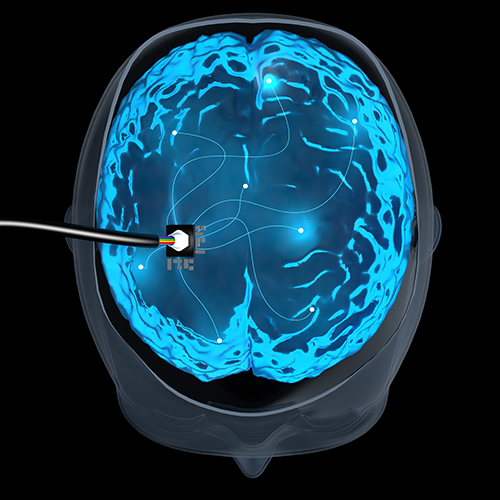Medical News
Are the Older Adults You Love Missing Out on These Life-Changing Adaptive Tools?
As many as half of all seniors living at home are not utilizing life-changing adaptive tools.
Consider the many tools you make use of each day – your phone, toothbrush, hairbrush – simple items, but ones you can’t imagine living without. For many seniors, there are basic but life-changing adaptive tools available that could mean the difference between living at home and facing a move to assisted living. Yet almost 50% of seniors living at home are not utilizing these helpful tools – even though costs are minimal.
A recent National Health and Aging Trends Study assessed the ability of older adults to execute tasks such as rising unassisted from a sitting position and walking, and discovered that a large number of the participants could benefit from assistive devices.
Not only that, but the likelihood of older adult … Read More »
The Post-Pandemic Health Care Appointments You Should Schedule Today
Learn about three post-pandemic health care appointments you may have been putting off, and why you should get them scheduled.
At the start of the pandemic, life as we knew it came to a screeching halt – including, in many cases, our health care needs. Dr. Ned Sharpless, director of the National Cancer Institute, shares, “There was a time, early in the pandemic, when we didn’t know much about this virus. So at that time, I think hospitals and clinics closing – that made sense.” But he goes on to explain that we know more now – and now is the time to get back on track with post-pandemic health care appointments and procedures.
We have evidence now that the health risks of avoiding exams and tests outweighs the risk of contracting COVID-19. Experts have outlined three key … Read More »
The Alarming Link Between Isolation and Alzheimer’s Progression
An attractive mature African American woman asks a question by raising her hand in class.
In the past several years since COVID-19 became a household term, seniors, who are most vulnerable to severe complications from the virus, became more isolated in order to stay safe. And while we already were aware that there are health risks connected with loneliness and isolation, we’re now beginning to realize another serious concern: how isolation and Alzheimer’s progression are linked.
Since people with Alzheimer’s and other forms of dementia may struggle to understand and follow safety precautions, like wearing face coverings, reporting symptoms, and social distancing, isolation for these individuals became especially critical. But while maintaining these seniors’ physical health was the top priority, it’s also important to pay attention to their emotional wellbeing, which can also be negatively impacted without sufficient … Read More »
4 Important Facts About Cancer You May Not Know
These facts about cancer may change the way you think about the disease.
Each year since 1999, we’ve achieved an increasing decline in cancer-related deaths, an encouraging trend that’s poised to continue as researchers learn more and more facts about cancer and its causes, and are able to develop new and better treatment methods. Yet cancer is still one of the leading causes of death in America, second only to heart disease – making it all the more crucial to continue to press forward with persistence to find a cure.
Here’s what we’ve learned so far:
Diet makes a difference. Although a diet rich in antioxidants can help prevent cell damage (and protect against cancer), a recent study showed that in some cases, cancers take advantage of a nutrient-rich diet, leading to accelerated metastasis. As a result, the recommendation … Read More »
How Artificial Intelligence Is Playing a Key Role in Alzheimer’s Research
Learn about the tool that’s helping expedite Alzheimer’s research.
Alzheimer’s research took a giant leap forward, thanks to a tool that allows pathologists to analyze and classify amyloid plaques and abnormalities in blood vessels through technology similar to face recognition software – leading to the ability to process a vast amount of data in a markedly reduced amount of time.
The study, conducted by UC Davis and UC San Francisco, tested the ability to automate the time-intensive process of reviewing, identifying, and analyzing microscopic amyloid plaques in brain tissue. Dubbed “blob or not,” this digital pathology tool was found to be highly efficient – correctly annotating plaque samples at the unimaginable rate of 2,000 per hour – limited only by the number of processors used in the study. The program was even able to distinguish between different types … Read More »
This Lifestyle Change Can Turn Back Time to Improve Heart Health
Improve heart health with this one simple lifestyle change!
In our younger years, physical activity was a given. Our days were filled with participating in sports programs, recess on the playground, and games of tag with friends. All of this naturally gave our heart the workout it needed to stay healthy. But as we grow older, a more sedentary lifestyle can settle in – having serious repercussions on our hearts, including stiffness, a decreased efficiency in oxygen production, and an elevated risk of heart disease and failure. Is there anything we can do to improve heart health and possibly even restore its functioning to what it was when we were younger?
Discover the Astonishing Benefits of Art in Dementia
about the incredible benefits of art in dementia from our experts in dementia care in Pleasanton, CA and the surrounding areas.
They say a picture is worth a thousand words, and when it comes to comprehending the thoughts and feelings of someone with dementia, no truer words have been spoken. Artistic expression is vital for all of us, but the benefits of art in dementia are especially remarkable, including enhanced socialization and physical health, a calmer, more peaceful demeanor, and even improvements in both apathy and self-worth.
What Elephants Are Teaching Us About Alzheimer’s Disease
Researchers are gleaning information from elephants to help us better understand Alzheimer’s disease.
The old adage is true: elephants truly do have amazing memories, even into their later years. To illustrate, they’re able to recollect and go back to highly specific locations decades after visiting them, irrespective of age. Exactly what can we glean from elephants that may result in helping us better understand Alzheimer’s disease and to maximize our own cognitive performance later in life?
Remarkably, older elephants’ brains show no buildup of the amyloid plaques some researchers are linking to Alzheimer’s. Even though other health professionals tout the need for sufficient sleep to permit the mind the chance to clean away plaques, elephants are tromping over that theory, sleeping as little as 2 hours daily.
But one factor rises above the rest which may be the main key: socialization. … Read More »
Innovative Advances in Stroke Recovery Show Early Promise
An innovative new stroke recovery therapy holds promise for restoring mobility.
In an innovative, ongoing trial, deep-brain stimulation – more commonly used for Parkinson’s patients – has recently been tested on stroke survivors. Physicians are hoping that the end result associated with the deep-brain stimulation treatment – which involves implanting an electrode to stimulate a particular portion of the brain – will restore mobility in stroke recovery patients and place an end to the paralysis that so many often experience after a stroke, making the future of home care for stroke patients look much brighter!
To be able to comprehend how a stroke hinders normal brain activity, Laurie Ann Bonkoski, a speech therapist, compares a stroke to a home whose front door has unexpectedly become obstructed by a fallen tree. In her studies, she’s determined to sidestep that … Read More »
Health Risks Of Ibuprofen and Naproxen
As we grow older, most of us develop aches and pains. Sometimes we overlook the pain and get on with life, but other times soreness and pain interfere with our activities. But rather than simply swallowing a few pain pills from your medicine cabinet, you should know about recent FDA warnings about the health risks of ibuprofen and naproxen.
These over-the-counter pain relievers, sold under various brand names, such as Advil, Motrin, and Aleve, can be quite helpful. But as with any medicines, prescription or over-the-counter, they must be taken with caution, particularly because the FDA has confirmed that these have a hidden danger.
Although the FDA has long warned that nonsteroidal anti-inflammatory drugs (NSAIDs) may potentially boost the danger of heart disease and stroke, the wording of this warning has been modified to reflect a more serious nature, … Read More »
















